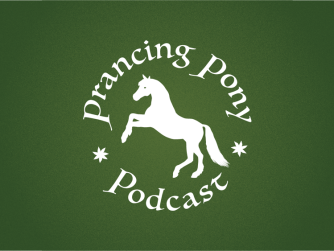
In this special spoiler-filled episode, we delve into Tolkien’s letters and The History of Middle-earth to examine Tolkien’s concept of mortality as “the gift of the One to Men.” We discuss the fates of Elves and Men and how they illustrate a central theme in the legendarium, and demonstrate that anything in life can be improved with a reference to The Princess Bride.
Recommended Reading:
Tolkien, J. R. R. The Silmarillion (Mariner Books, paperback)
Carpenter, Humphrey, ed. The Letters of J.R.R. Tolkien (Mariner Books, paperback)



Thank you, Alan and Shawn, for patiently and carefully answering my question about Death as an Enemy vs. Death as a Gift. I see now that the first refers to life as it is and has been, but the second to life as God/Eru means it to be for His willing created beings with Him beyond His created world. Thank you for introducing me to the Athrabeth/Debate between Finrod and Andreth about immortality in Morgoth’s Ring, the next book I’m coming to in my HoME reading. It and your discussion here shed light on the famous Resurrection Chapter in the Bible, 1 Corinthians 15, especially these pinnacle verses near the end: “This perishable must put on the imperishable, and this mortal must put on immortality…. Then will come about the saying that is written, ‘DEATH IS SWALLOWED UP in victory. O DEATH, WHERE IS YOUR VICTORY? O DEATH, WHERE IS YOUR STING?'”
Thank you, Allacin! Your question made for an excellent discussion, and a great excuse to read some of the deeper works in the HoME. I think you’ll enjoy and appreciate every page of Morgoth’s Ring … and we welcome any further questions you’d like us to discuss as you work your way through.
I’ve always felt that Ilúvatar’s gift was a good one, but poorly delivered. When you see what immortality means for Elves, which inevitably becomes a huge burden, it’s easy to understand why death can be a positive thing. But the race of man was given no possible way of understanding this “gift,” and many ended up being punished for misunderstanding it. Melkor and Sauron worked as active agents in deceiving Man about the meaning of mortality, but almost no guidance was given from the “good” side, except for isolated conversations and a brief message from the Valar informing the Númenóreans that entering Aman would not make them immortal. I’m not defending the actions of Ar-Pharazôn, as he was a colossal asshole. But the race of man as a whole had very few teachers or role models in this regard, especially the “middle men” of Middle-earth, and had no perspective of death except for the fear that had been attached to it by millennia of war that had begun before humanity even existed. Add that to things like sickness and famine that don’t even apply to Elves, and it’s easy to understand why Men would think they’d been shafted on a cosmic level.
As a millennial, your “Ar-Pharazôn the Millennial” line really cracked me up. It doesn’t have to be 100% accurate to be funny as hell!
Never go against a feanorian, when a silmaril is on the line!